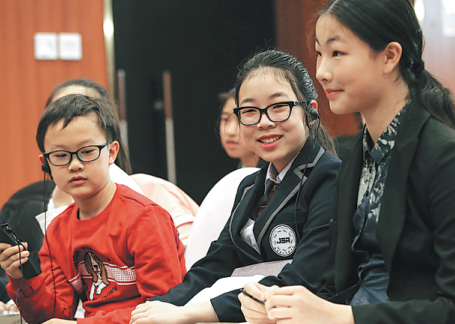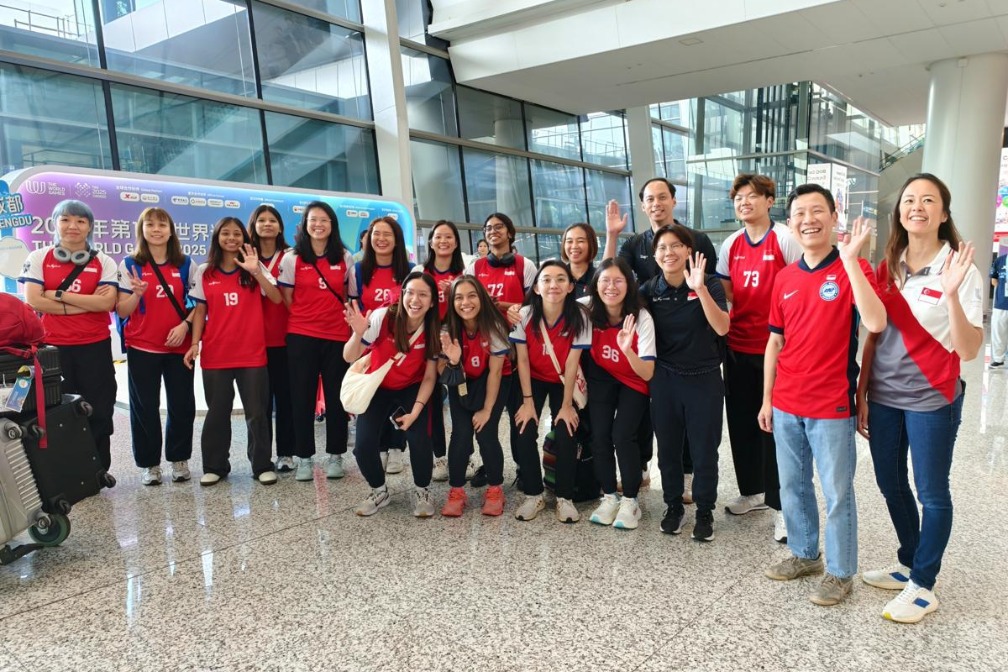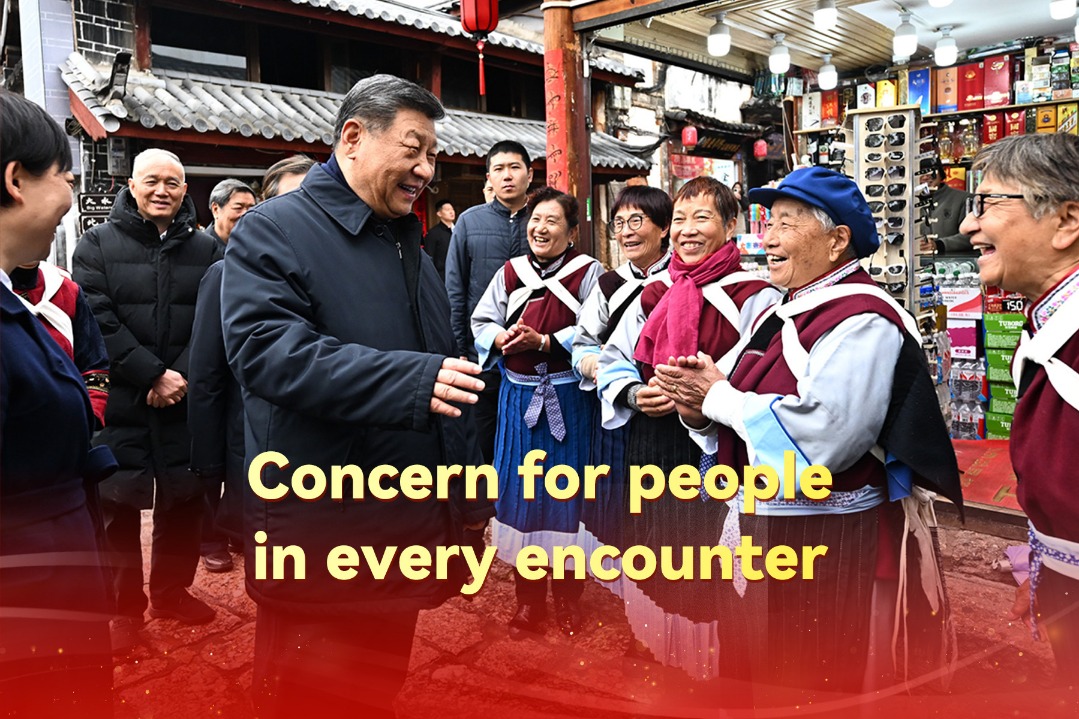An engaging formula for learning
Science festival targets young, inquisitive minds with an innovative approach, He Wei reports.

As mathematics and technology take a more prominent role in the rapidly-changing economy, more varied educational methods are being explored to make learning more fun, relevant and useful.
Internet conglomerate Tencent Holdings Ltd is endeavoring to foster children's interest in science-related subjects by hosting an annual event that gathers world-leading figures and delivers lectures in a way that's engaging and comprehensible.
During the Tencent Youth Science Festival last month, luminaries-ranging from Ouyang Ziyuan, founding father of the Chinese lunar exploration program, and Avery Broderick, US astrophysicist who helped photograph a black hole, to Marc Abrahams, US author, columnist and creator of the Ig Nobel Prizes-gathered at Tsinghua University to impart their knowledge and share their experiences with youngsters.
"The event aims to foster curiosity that's embedded in the mind of every child and ignite their passion for science," says Cheng Wu, vice-president of Tencent and CEO of Tencent Pictures. "Not everyone will grow up to become scientists but we strive to protect and cultivate that curiosity to explore the unknown."
The youth gala unveiled a list of science topics interesting to Chinese youngsters, and identified astronomy as the most popular subject.
In February 2017, the Ministry of Education announced it would officially add science, technology, engineering, and mathematics (STEM) education into the primary school curriculum. This suggests that the segment's development will play a pivotal role in transforming China from a manufacturing-based economy to an innovation-driven, knowledge-based economy.
This thirst for knowledge was exemplified by young spectators demanding short videos of chemical experiments conducted by David Evans, a member of the Royal Society of Chemistry in the United Kingdom and a professor at the Beijing University of Chemical Technology.
Several visits to Chinese university chemistry departments in the early 1990s convinced Evans of China's potential for development in this area and he moved to China to work at the university in 1996.He is a member of the State Key Laboratory of Chemical Resource Engineering.
Evans made a name for himself in China as a scientist devoted to making the subject popular among students, both on and off campus. He has achieved even greater recognition since curating and uploading a series of "magic" science experiments to Chinese video platform Kuaishou. He has garnered 2.3 million followers on the platform and is now using livestreaming to further popularize science.
"China is such a huge country that I can only talk to a small proportion of the population. So when my assistant introduced me to Kuaishou, I thought: This is a great idea," says Evans, who also delivered a speech during the Tencent Youth Science event.
"Because many Kuaishou users live in small towns or in the countryside, they are a long way from a science museum or any sort of science activity. But Kuaishou is open to everybody, if you have a mobile phone and a signal," he explains.
Apart from attracting a noticeably larger number of students and addressing the imbalance of education resources across different regions, such platforms targeting a mass audience serve as a natural "eye-opener" and grant viewers the possibility to "incidentally" uncover their unrealized interest in science, Evans says.
Other speakers shared their views on the opportunities and challenges of embarking on a journey into science. For instance, Tim Appenzeller, who switched careers from an English literature graduate at Harvard University to an editor at Science magazine, referred to the difference of the two paths.
"Scientists, at some point, may decide they want to be an observer rather than a participant, but the best part is that they didn't choose (to be a journalist) as an easier alternative," Appenzeller says.
But challenges abound. One needs to have the talent and confidence to do the job while being an objective observer of whatever subject is being reported on, according to Appenzeller.
Cutting-edge subjects like artificial intelligence are being included in the university syllabus as the education authorities strive to make Chinese universities "core forces "for building major global AI innovation centers by 2030.
The process of learning about AI and coding it fosters a structural way of thinking and a mindset of "operability and repeatability", says Zhang Shengyu, a chief scientist at Tencent specializing in quantum computing and a core figure in establishing its quantum lab.
"To help students grasp the essence of AI, it requires a concerted effort to learn fundamental subjects like mathematics and physics," Zhang says. "And it is important to enhance communication among like-minded figures in the field, be they researchers, teachers or students."
He points out that the conversion of science theory to tangible practice might require time and come with a lot of uncertainties. Companies like Tencent, he says, have shown patience and interest in investing in fundamental research that could take a while to bear fruit.
Appenzeller also emphasizes the importance of patience, saying that despite the advancements made in algorithms to perform certain tasks, it will be a long time before AI can match the playfulness and imagination essential for science. "The questions that no one has asked before, the approaches no one seeks to take, are what those algorithms won't be thinking of investigating," he says.



Today's Top News
- Chengdu gearing up for World Games
- China, Nepal to strengthen bilateral ties
- Schoolgirl swimmer shines at worlds
- Interest in vocational programs surges
- Robust policy support to propel growth
- US putting its old-generation chips on Chinese table in a bid to stop Ascend






























